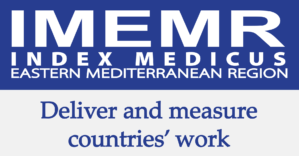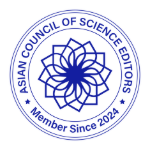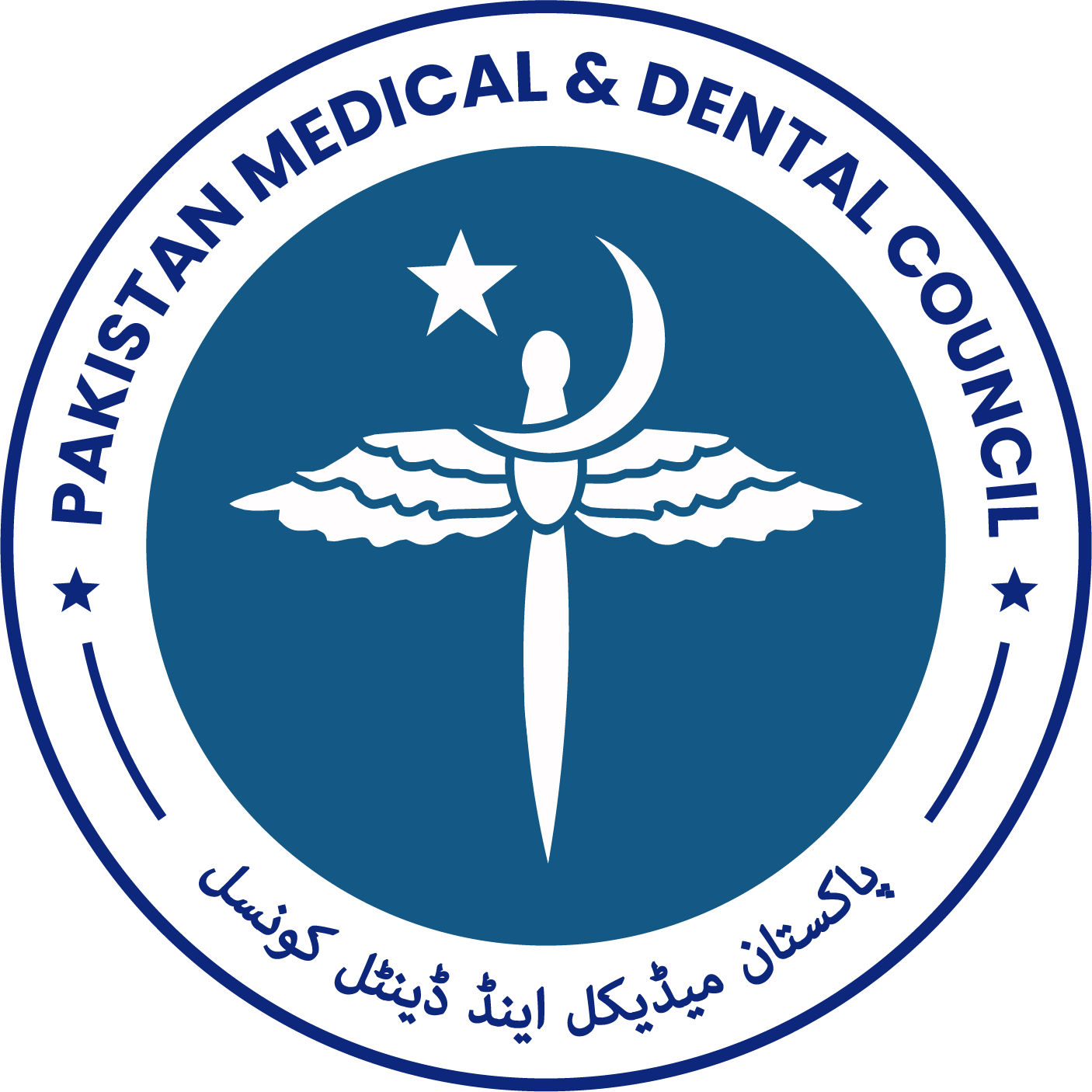Twelve Tips for Enhancing Student Learning Experience in the Operating Room
DOI:
https://doi.org/10.53685/jshmdc.v3i1.78Keywords:
Operating Room, Operation Theater, Learning, Student, Resident, Simulation Lab, Quality of Learning Experience, Structured Learning, Structured Clinical Encounters, Structured Surgical Encounter TemplateAbstract
Student learning within the Operating Room (OR) is complex and challenging, especially for medical students who heavily rely upon structured learning plans. Medical students’ OR-based surgical learning experience is heterogenous, unstandardized, and inadequate for many reasons. There is a growing need to evaluate the learning modalities and models that we currently use for medical graduates’ OR-based learning process, create a balance between structured and opportunistic learning encounters and incorporate previously identified factors that have been known to influence the quality of OR-based learning positively. In continuation with our previous work on OR-based learning, here we argue for a structured OR-based learning plan that embodies appropriate learning models and teaching methodologies and focuses on a comprehensive plan that justifies a local needs analysis and addresses factors influencing the quality of OR-based student learning to produce enhanced learning outcomes.
References
Hexter AT, O’Dowd-Booth C, Hunter A. Factors that influence medical student learning in the operating room. Med Teach. 2019; 41(5): 555–560. Available from: http://www.ncbi.nlm.nih.gov/pubmed/30253684 DOI: https://doi.org/10.1080/0142159X.2018.1504163
Monkhouse S. Learning in the surgical workplace: a necessity not luxury. Clin Teach. 2010; 7(3): 167–170. Available from: http://www.ncbi.nlm.nih.gov/ pubmed/21134176 DOI: https://doi.org/10.1111/j.1743-498X.2010.00359.x
Croghan SM, Phillips C, Howson W. The operating theatre as a classroom: a literature review of medical student learning in the theatre environment. Int J Med Educ. 2019; 10: 75–87. Available from: http://www.ncbi.nlm.nih.gov/ pubmed/31012867 DOI: https://doi.org/10.5116/ijme.5ca7.afd1
Waseem T, Munir Baig H, Yasmin R, Ahmad Khan R. Exploring Operating Room-Based Student Learning Experience: Perils & Pitfalls? A Narrative Literature Review. Arch Surg Res. 2020; 1(2): 25- 34. Available from: http://www.archivessr.com/index.php/asr/article/vie w/34
Lyon P. A model of teaching and learning in the operating theatre. Med Educ. 2004; 38(12): 1278–1287. Available from: http://www.ncbi.nlm.nih.gov/ pubmed/15566539 DOI: https://doi.org/10.1111/j.1365-2929.2004.02020.x
Weinberg D, Saleh M, Sinha Y. Twelve tips for medical students to maximize learning in theatre. Med Teach. 2015; 37(1): 34–40. Available from: http://www.ncbi.nlm.nih.gov/pubmed/24984710 DOI: https://doi.org/10.3109/0142159X.2014.932899
Lyon PMA. Making the most of learning in the operating theatre: student strategies and curricular
initiatives. Med Educ. 2003; 37(8):680–688. Available from: http://www.ncbi.nlm.nih.gov/pubmed/12895247 DOI: https://doi.org/10.1046/j.1365-2923.2003.01583.x
Roberts NK, Williams RG, Kim MJ, Dunnington GL. The briefing, intraoperative teaching, and debriefing model for teaching in the operating room. J Am Coll Surg [Internet]. 2009; 208(2): 299–303. Available from: http://www.ncbi.nlm.nih.gov/ pubmed/19228544 DOI: 10.1016/j.jamcollsurg.2008.10.024 DOI: https://doi.org/10.1016/j.jamcollsurg.2008.10.024
Cope A, Bezemer J, Sutkin G. Models of Teaching and Learning in the Operating Theatre. 2019; 171–182. Available from: http://link.springer.com/10.1007/978-981-13-3128- 2_16 DOI: https://doi.org/10.1007/978-981-13-3128-2_16
Maggio LA, Cate O Ten, Irby DM, O’Brien BC. Designing evidence-based medicine training to optimize the transfer of skills from the classroom to clinical practice: applying the four component instructional design model. Acad Med. 2015; 90(11): 1457–1461. Available from: http://www.ncbi.nlm. nih.gov/pubmed/25993279 DOI: https://doi.org/10.1097/ACM.0000000000000769
Ravindra P, Fitzgerald JEF, Bhangu A, Maxwell-Armstrong CA. Quantifying factors influencing operating theater teaching, participation, and learning opportunities for medical students in surgery. J Surg Educ. 2013; 70(4): 495– 501. Available from: http://www.ncbi.nlm.nih.gov/pubmed/23725937 DOI: https://doi.org/10.1016/j.jsurg.2013.02.011
Zundel S, Wolf I, Christen H-J, Huwendiek S. What supports students’ education in the operating room? A focus group study including students’ and surgeons’ views. Am J Surg [Internet]. 2015; 210(5): 951–959. Available from: http://www.ncbi.nlm.nih.gov/pubmed/26072189 DOI: https://doi.org/10.1016/j.amjsurg.2015.03.011
Hampton BS, Magrane D, Sung V. Perceptions of operating room learning experiences during the obstetrics and gynecology clerkship. J Surg Educ. 2011; 68(5): 377–381. Available from: http://www.ncbi.nlm.nih.gov/pubmed/21821216 DOI: https://doi.org/10.1016/j.jsurg.2011.03.006
Chatterjee D, Corral J. How to Write Well-Defined Learning Objectives. J Educ Perioper Med JEPM. 2017; 19(4): E610. Available from: http://www.ncbi.nlm.nih.gov/pubmed/29766034 DOI: https://doi.org/10.46374/volxix-issue4-chatterjee
O’Neill R, Shapiro M, Merchant A. The Role of the Operating Room in Medical Student Education: Differing Perspectives of Learners and Educators. J Surg Educ. 2018; 75(1): 14–28. Available from: http://www.ncbi.nlm.nih.gov/pubmed/28712688 DOI: https://doi.org/10.1016/j.jsurg.2017.06.013
Schwind CJ, Boehler ML, Rogers DA, Williams RG, Dunnington G, Folse R, et al. Variables influencing medical student learning in the operating room. Am J Surg. 2004; 187(2): 198– 200. Available from: http://www.ncbi.nlm.nih.gov/pubmed/14769304 DOI: https://doi.org/10.1016/j.amjsurg.2003.11.024
Flannery T, Gormley G. Evaluation of the contribution of theatre attendance to medical undergraduate neuroscience teaching--a pilot study. Br J Neurosurg. 2014; 28(5):680–684. Available from: http://www.ncbi.nlm.nih.gov/pubmed/246281 13 DOI: https://doi.org/10.3109/02688697.2014.896873
Callcut RA, Rikkers L, Lewis B, Chen H. Does academic advancement impact the teaching performance of surgical faculty? Surgery. 2004; 136(2): 277–281. Available from: http://www.ncbi.nlm.nih.gov/pubmed/15300191 DOI: https://doi.org/10.1016/j.surg.2004.03.015
Fernando N, McAdam T, Cleland J, Yule S, McKenzie H, Youngson G. How can we prepare medical students for theatre-based learning? Med Educ. 2007; 41(10): 968–974. Available from: http://www.ncbi.nlm.nih.gov/pubmed/17908114 DOI: https://doi.org/10.1111/j.1365-2923.2007.02839.x
da Cruz JAS, Dos Reis ST, Cunha Frati RM, Duarte RJ, Nguyen H, Srougi M, et al. Does Warm-Up Training in a Virtual Reality Simulator Improve Surgical Performance? A Prospective Randomized Analysis. J Surg Educ. 2016; 73(6): 974–978. Available from: http://www.ncbi.nlm.nih.gov/pubmed/27233673 DOI: https://doi.org/10.1016/j.jsurg.2016.04.020
Wayne DB, Didwania A, Feinglass J, Fudala MJ, Barsuk JH, McGaghie WC. Simulation-based education improves quality of care during cardiac arrest team responses at an academic teaching hospital: a case-control study. Chest. 2008; 133(1): 56–61. Available from: http://www.nc bi.nlm.nih.gov/ pubmed/17573509 DOI: https://doi.org/10.1378/chest.07-0131
Agha RA, Fowler AJ. The role and validity of surgical simulation. Int Surg. 2015; 100(2): 350– 357. Available from: http://www.ncbi.nlm.nih.gov/pubmed/25692441 DOI: https://doi.org/10.9738/INTSURG-D-14-00004.1
Aggarwal R, Mytton OT, Derbrew M, Hananel D, Heydenburg M, Issenberg B, et al. Training and simulation for patient safety. Qual Saf Health Care. 2010; 19 Suppl 2: i34-43. Available from: http://www.ncbi.nlm.nih.gov/pubmed/20693215 DOI: https://doi.org/10.1136/qshc.2009.038562
Paige JT, Garbee DD, Kozmenko V, Yu Q, Kozmenko L, Yang T, et al. Getting a head start: high-fidelity, simulation-based operating room team training of interprofessional students. J Am Coll Surg. 2014; 218(1): 140–149. Available from: http://www.ncbi.nlm.nih.gov/pubmed/24183570 DOI: https://doi.org/10.1016/j.jamcollsurg.2013.09.006
Bernard AW, Ceccolini G, Feinn R, Rockfeld J, Rosenberg I, Thomas L, et al. Medical student's review of formative OSCE scores, checklists, and videos improves with student-faculty debriefing meetings. Med Educ Online [Internet]. 2017; 22(1):1324718. Available from: http://www.ncbi.nlm.nih.gov/pubmed/28521646 DOI: https://doi.org/10.1080/10872981.2017.1324718
Dornan T, Tan N, Boshuizen H, Gick R, Isba R, Mann K, et al. How and what do medical students learn in clerkships? Experience-based learning (ExBL). Adv Health Sci Educ Theory Pract. 2014; 19(5):721–749. Available from: http://www.ncbi.nlm.nih.gov/pubmed/24638146 DOI: https://doi.org/10.1007/s10459-014-9501-0
Barnum TJ, Salzman DH, Odell DD, Even E, Reczynski A, Corcoran J, et al. Orientation to the Operating Room: An Introduction to the Surgery Clerkship for Third-Year Medical Students. MedEdPORTAL J Teach Learn Resour. 2017; 13: 10652. Available from: http://www.ncbi.nlm.nih.gov/pubmed/30800853 DOI: https://doi.org/10.15766/mep_2374-8265.10652
Burgess A, Wright C, Qasabian R, O’Mara D, Mellis C. Surgical teaching program for our senior medical students: room for improvement. Adv Med Educ Pract. 2014; 5: 369–375. DOI: https://doi.org/10.2147/AMEP.S63373
Available from: http://www.ncbi.nlm.nih.gov/pubmed/25337002
Chapman SJ, Hakeem AR, Marangoni G, Raj Prasad K. How can we enhance undergraduate medical training in the operating room? A survey of student attitudes and opinions. J Surg Educ. 2013; 70(3): 326–333. Available from: http://www.ncbi.nlm.nih.gov/pubmed/23618441 DOI: https://doi.org/10.1016/j.jsurg.2013.01.008
Lave J, Wenger E. Situated Learning. Cambridge University Press; 1991; Available from:https://www.cambridge.org/core/product/ident ifier/9780511815355/type DOI: https://doi.org/10.1017/CBO9780511815355
Downloads
Published
How to Cite
Issue
Section
License
Copyright (c) 2022 Talat Waseem, Hadia Munir Baig, Raheela Yasmin, Rehan Ahmad Khan

This work is licensed under a Creative Commons Attribution-NonCommercial 4.0 International License.
You are free to:
- Share — copy and redistribute the material in any medium or format
- Adapt — remix, transform, and build upon the material
- The licensor cannot revoke these freedoms as long as you follow the license terms.
Under the following terms:
-
Attribution — You must give appropriate credit, provide a link to the license, and indicate if changes were made. You may do so in any reasonable manner, but not in any way that suggests the licensor endorses you or your use.
-
Non Commercial — You may not use the material for commercial purposes.
-
No additional restrictions — You may not apply legal terms or technological measures that legally restrict others from doing anything the license permits.





















